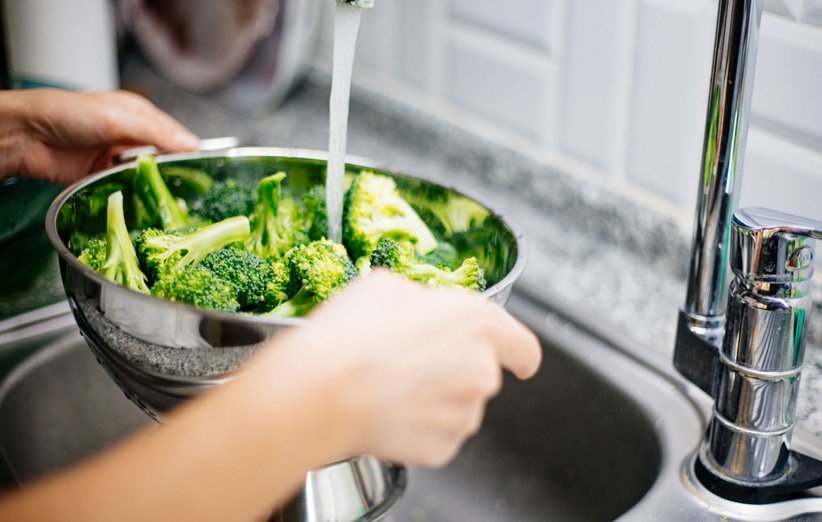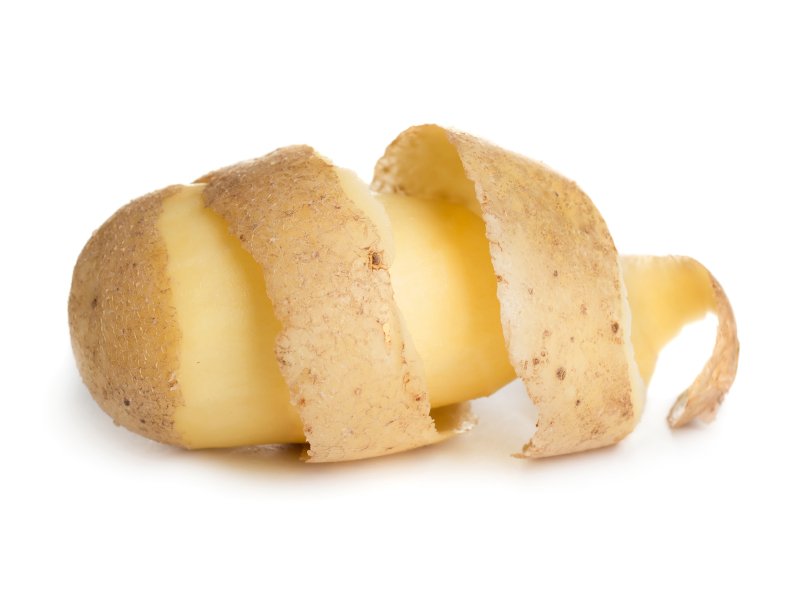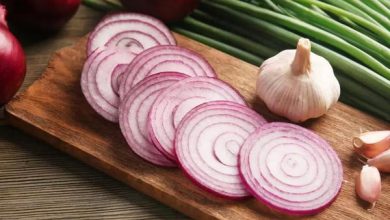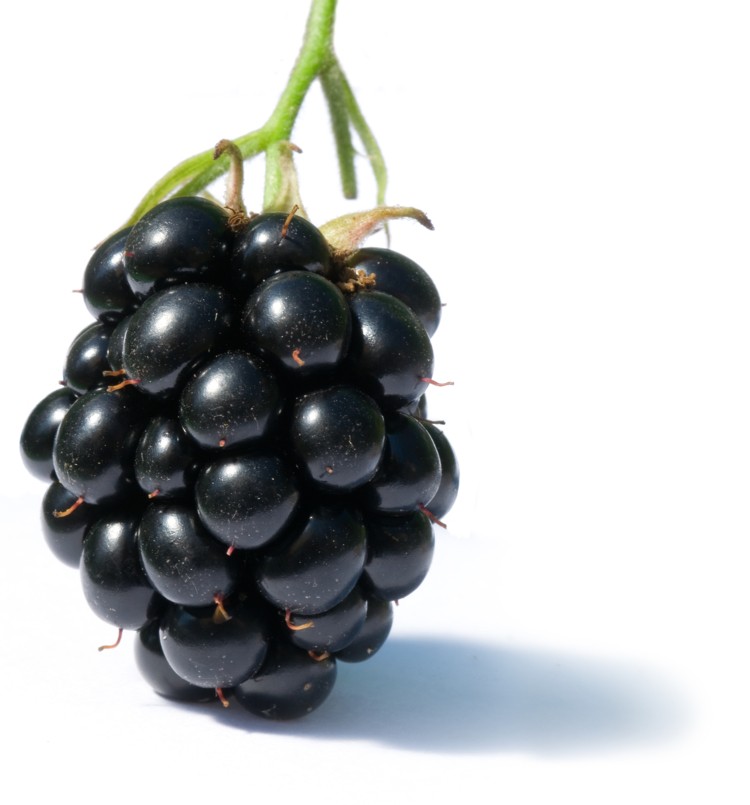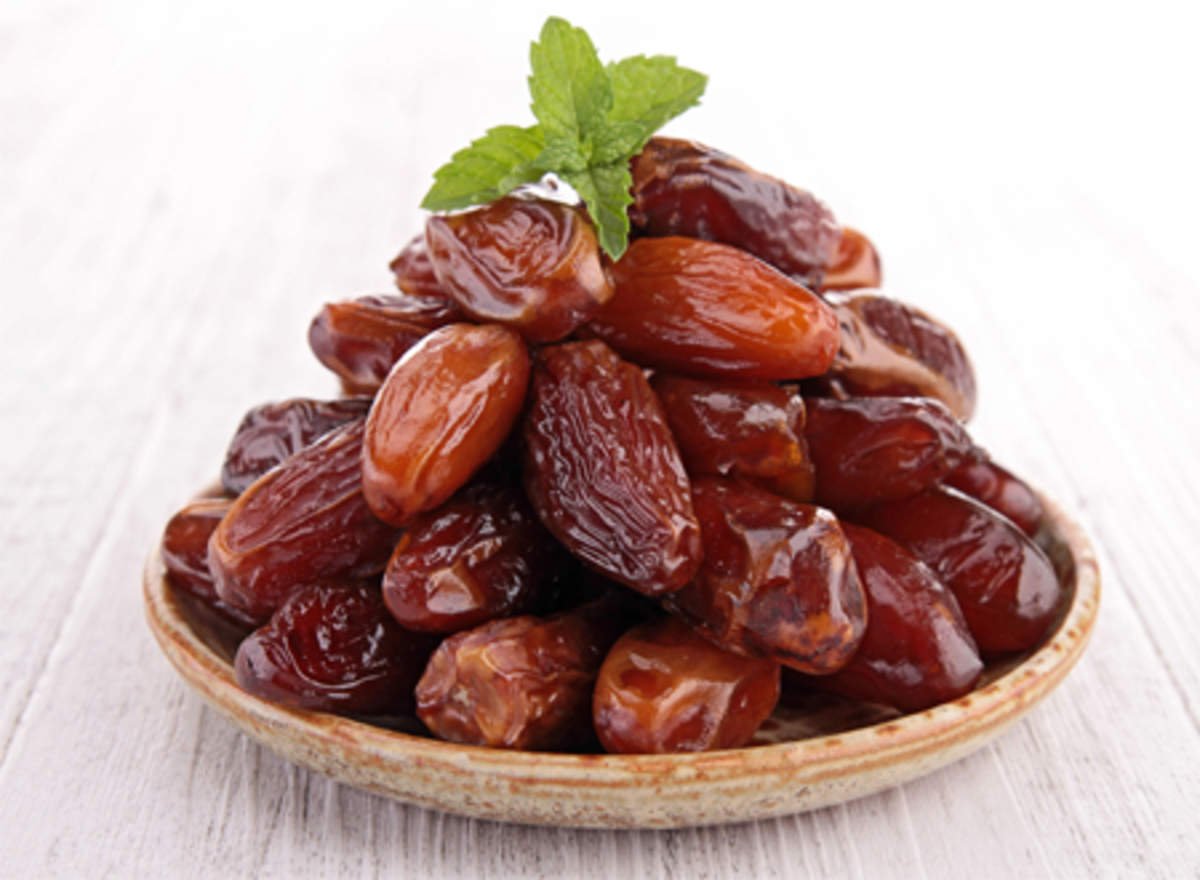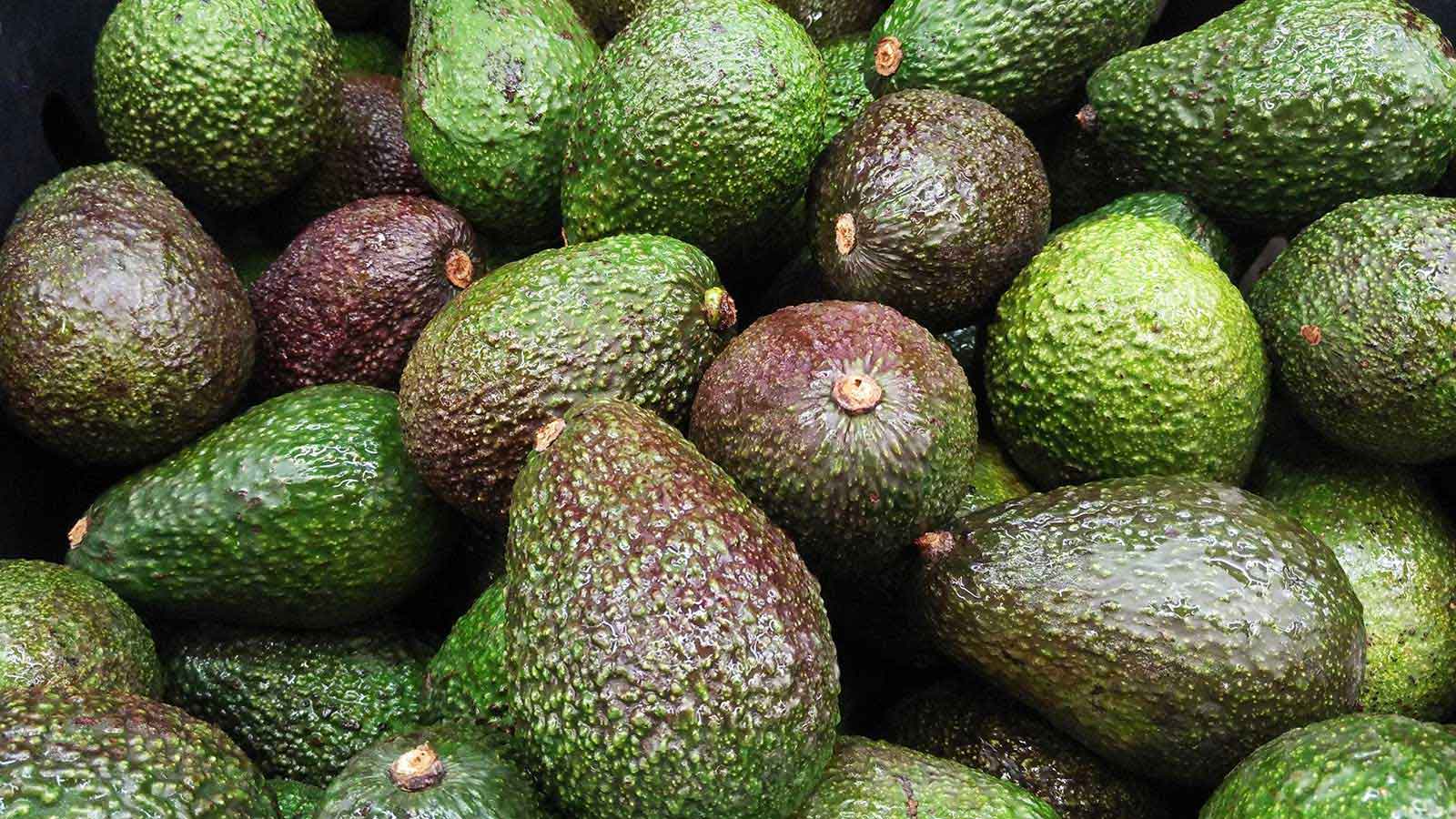14 properties of mango for health
Mango is a delicious and sweet summer fruit that has many health benefits. This fruit is also called the “king of fruits” because of its significant nutritional value. The origin of this fruit goes back to South Africa. Mango is available in different colors and sizes around the world. This fruit has more than 20 types of minerals and vitamins and is one of the most nutritious fruits. Mango is said to have antioxidant properties and may strengthen the immune system, reduce the risk of heart disease, improve gastrointestinal health, and reduce the risk of certain types of cancer.
The nutritional value of mango
Mango has a very high nutritional value. This fruit is a good source of various vitamins and minerals. The nutritional value of one cup (165 grams) of mango is as follows.
The fruit also contains vitamin A, riboflavin, niacin, magnesium, manganese, and phosphorus.
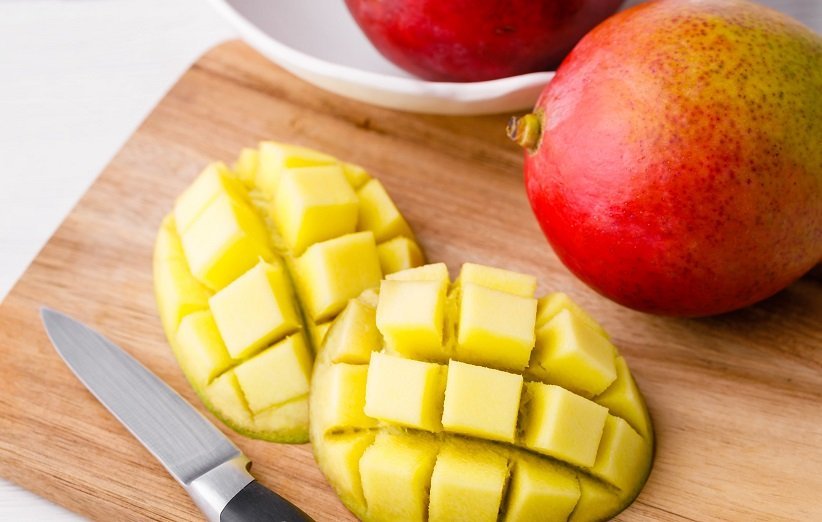
Properties of mango for health:
-
It is rich in antioxidants
Mango is rich in polyphenols, which are plant compounds that act as antioxidants. This fruit contains various antioxidants, including mangiferin, catechin, anthocyanin, quercetin, kaempferol, benzoic acid, and. Antioxidants are essential for the body because they protect cells from free radical damage. Free radicals are compounds that damage cells.
Various studies have linked free radical damage to the signs of aging and chronic disease. Among the polyphenols in mango, mangiferin is the most popular and sometimes called “super antioxidant” because it is powerful. Laboratory and animal studies have concluded that mangiferin may fight free radicals associated with various cancers, diabetes, and other diseases.
2. Reduces the risk of heart disease
Reducing the risk of heart disease is another property of mango. Including mango in a balanced diet can help reduce body fat and control blood sugar levels. This fruit contains potassium and magnesium, which may reduce the risk of heart disease.
An academic study concluded that magnesium intake might improve heart health. Potassium also acts as a vasodilator and may reduce pressure on blood vessels and improve heart function. Mango is a rich source of beta-carotene.
Carotenoids may reduce the risk of heart disease by preventing the oxidation of cholesterol in the arteries. The results of an academic study in rats showed that mangiferin lowers blood cholesterol levels. The study also showed that mangiferin supplements raise good cholesterol (HDL) levels.
-
Improves gastrointestinal health
Mango contains digestive enzymes such as amylase. These enzymes break down complex carbohydrates into simple sugars. This may help improve digestive processes; However, more studies are needed to make a definitive statement. Researchers in a study at the University of Texas concluded that mango might help relieve the symptoms of constipation.
-
Promotes eye health
Another property of mango is to strengthen the health of the eyes. Vitamin A and beta-carotene in mango may be effective in improving eye health. It is essential to know that vitamin A enhances eye and vision health, and severe deficiency can lead to blindness. This vitamin is especially essential for optimal corneal function.
Human eyes need two essential carotenoids called lutein and zeaxanthin. Mango is a rich source of zeaxanthin and may help improve eye health. According to a study conducted in Boston, USA, cryptoxanthin (another type of carotenoid in mango) reduced the risk of developing age-related macular degeneration in older Japanese people.
-
Reduces the risk of cancer
Reducing the risk of cancer can also be added to the list of properties of mango. Mango meat contains carotenoids, ascorbic acid, terpenoids, and polyphenols that have anti-cancer properties. Mango has been shown to have unique antioxidants not found in other fruits and vegetables.
A study from the University of Texas concluded that the polyphenols in mango have anti-cancer properties and may help reduce oxidative stress. Oxidative stress can increase the risk of chronic diseases such as cancer.
Mango has anti-cancer properties due to its harmful content. An animal study in mice in 2015 showed that mango polyphenols might prevent breast cancer. Mangiferin has also been shown to inhibit the growth of colon and liver cancer cells.
Another animal study in mice concluded that lupus in mango might fight prostate cancer. Animal studies have shown that mango polyphenols inhibit the growth of breast cancer.
-
May cure diabetes
Eating mango may help treat diabetes. A study of 20 overweight people found that consuming half a fresh mango for 12 weeks lowered blood glucose levels. Another study concluded that mango peel extract has anti-diabetic properties. An academic study concluded that mangiferin in mango might have beneficial effects on people with type 2 diabetes.
-
Treats anemia
Mango contains iron and may help pregnant women and women with anemia get more iron. Vitamin C in mango can help the body absorb iron properly.
-
Improves brain health
Mango contains vitamin B6, and if consumed with other foods rich in this vitamin, it may help strengthen brain health. Some studies show that vitamin B6 deficiency can increase the risk of depression and epilepsy.
A study in mice showed that mango extract might improve memory. Another study in Thailand found that mango extract may protect you against mild cognitive impairment. However, more studies are needed to understand the properties of mango in the cognitive system.
-
Lowers blood cholesterol levels
Researchers in a university study on mice found that mangiferin in mango effectively lowered blood cholesterol levels. This study also showed that mangiferin mango increases good cholesterol.
-
It helps to lose weight.
In one study, researchers focused on the effect of mango peel (which most of us avoid) on preventing the formation of fat cells. Eating mango and its skin along with a healthy diet and lifestyle may help you lose weight. Mango contains fiber and may potentially be effective in weight loss.
An academic study has shown that dietary fiber, especially fiber in fruits and vegetables, helps with weight loss. This is because fiber makes you feel full for a long time, and as a result, your food intake is reduced.
-
Strengthens liver health
Mango consumption may improve liver function. There is some evidence that unripe mango may help treat liver disease. However, there are not enough studies to prove this.
-
strengthens the immune system
Mango is a rich source of essential vitamins that strengthen the immune system. This fruit contains vitamin C, which has antioxidant properties and may help support the immune system. An academic study showed that mango is rich in beta-carotene, a type of carotenoid that helps strengthen the immune system.
Vitamin A is another essential nutrient in mango that is also effective in strengthening the immune system. One cup (165 grams) of mango provides 10% of the body’s daily requirement of this vital vitamin. This vitamin may fight infectious diseases. In addition, mango contains vitamin K, vitamin E, and B vitamins, which effectively strengthen the immune system.
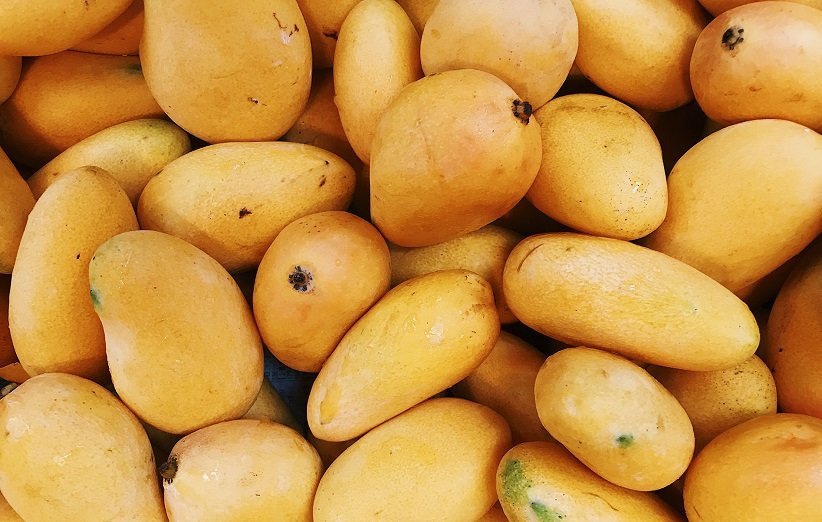
-
Improves skin health
A study in South Korea concluded that mango extract might protect the skin from aging caused by UVB exposure. Mango is rich in beta-carotene and vitamin A. A study in Germany showed that these carotenoids could improve skin health.
Beta-carotene prevents skin aging due to the sun. According to a Chinese study, the polyphenols in mango have anti-cancer properties. These compounds may help reduce the risk of skin cancer. Some evidence suggests that mango may also prevent pimples or acne.
14 Useful in improving hair health
Another property of mango is improving hair health. Mango is a rich source of vitamin A and may help improve hair health. Studies in mice have shown that vitamin A can activate hair follicles.
This may improve sebum production (the skin’s natural fat that moisturizes the scalp) and help boost scalp health. Mango is also a rich source of polyphenols and may help fight oxidative stress. Oxidative stress has many adverse effects on body health.
Side effects of mango
Mango consumption is usually considered safe. However, some people may be allergic to mangoes and develop allergic reactions and contact dermatitis. In addition, excessive consumption of mango can lead to several side effects such as diarrhea and high blood sugar levels. Of course, little research has been done in this area.
How to prepare four meals with mango
Now that you know the properties of mango, you should think of creative ideas to add mango to your diet. Here is how to prepare four delicious dishes with mango.
- Mango Salsa
Salsa sauce is a type of Mexican sauce that has a great variety and spicy taste. Mango salsa is an attractive and delicious food. You can enjoy mango salsa with chicken or fish.
Elements
Mango: One number
Red bell pepper: a quarter cup
Chopped onion: one
Chopped coriander: two tablespoons
Chopped pepper: one
Lemon juice: three tablespoons
Salt and pepper: if needed
How to prepare
1
To make mango salsa, first, peel the mango and remove the core. Then crush it. Chop the bell peppers.
2.
Chop the coriander. Take a medium bowl and mix the mango, red bell pepper, onion, coriander, Filipino pepper, and lemon juice well. Season the resulting mixture with enough salt and pepper.
3
Cover and refrigerate for 30 minutes before serving to cool. Enjoy your meal.
- A sweet and high-calorie drink
You can make a hearty and exciting smoothie by mixing mango with other ingredients. By eating this smoothie, in addition to enjoying the properties of mango and increasing the body’s energy level, you will also receive fiber, protein, and probiotics.
Elements
Ice: One cup
Frozen chopped mango: two cups
Medium chopped bananas: one
Tasteless Greek yogurt: half a cup
Orange juice: three-quarters of a cup
Honey: a teaspoon (or more)
How to prepare
1
Put pieces of ice, chopped mango and banana, Greek yogurt, orange juice, and honey in a blender. Beat the ingredients for 45 seconds to 1 minute until the smoothie is thick and soft.
2
You can add more orange juice to make the smoothie your desired concentration.
3
Taste the smoothie and add more honey if needed. Pour the mango smoothie into your favorite glass and enjoy drinking it.
- Milkshake mango and oatmeal
This delicious milk is another dish that you can prepare with mango. This drink is ready in a short time. So please do not neglect to build it.
Elements
Mango: One number
Oatmeal: Two tablespoons
Honey: a tablespoon
Milk: 200 ml
How to prepare
1
Peel a squash, grate it and squeeze the juice. Pour the mango with oatmeal, honey, and milk in a blender and beat it several times until the ingredients are smooth.
2.
Refrigerate the milkshake before serving. Your mango and oat milkshake are ready.
- Mango salad
You can make a variety of salads by mixing different fruits and vegetables. Mango salad is one of the attractive and nutritious salads that mango fans should try even once.
By preparing this salad, you will not only taste a new and different salad, but you will also receive vitamin C, vitamin A, iron, calcium, fiber, potassium. The ingredients of this salad are enough for two people.
Ingredients for preparing mango salad
Ripe mangoes: three
Red bell pepper: two
Onion: half a number
Freshly chopped basil: half a cup
Freshly chopped coriander: half a cup
Ingredients for preparing mango salad dressing
Lemon juice: half a cup
White sugar: four teaspoons
Pieces of red pepper: a quarter of a teaspoon
Vegetable oil: two tablespoons
Salt and black pepper: if needed
1
To prepare mango salad, first, peel and finely chop the mangoes. Chop the onion and red bell pepper.
2
Take a large bowl and add chopped mango, red bell pepper, onion, basil, and fresh coriander and mix well. Before pouring the sauce over the salad, put it in the fridge to cool.
3
Now is the time to prepare the mango salad dressing. In a small bowl, combine lemon juice, white sugar, red pepper shell, vegetable oil, and salt and pepper.
4
Take the salad bowl out of the fridge and pour the sauce over it. Stir the salad well. Enjoy your meal.
Mango is highly nutritious and delicious. This fruit is rich in essential vitamins, minerals, and polyphenols. Mango is said to have antioxidant and anti-cancer properties. If you are allergic to mango, you should use it with caution. In today’s article by Digi Kala Mag, we talked about the 14 properties of mango and its nutritional value and learned how to make four delicious and nutritious foods with it. Do not forget to include this helpful fruit in your diet.



